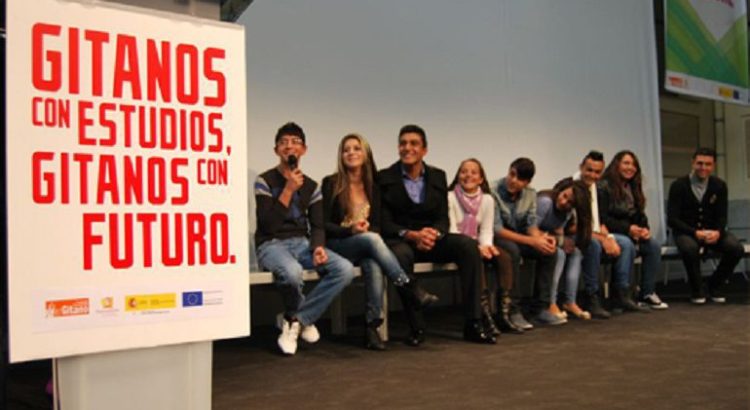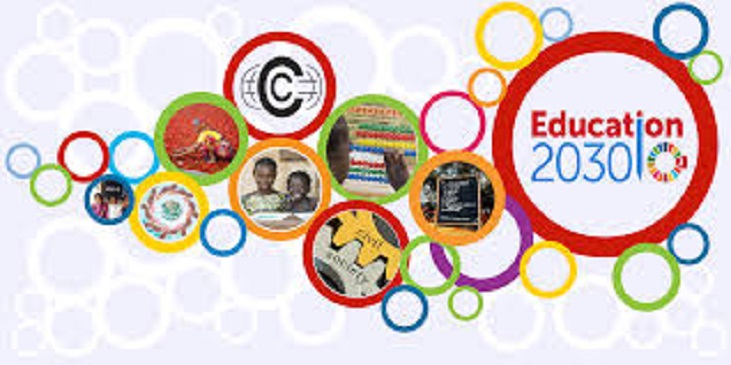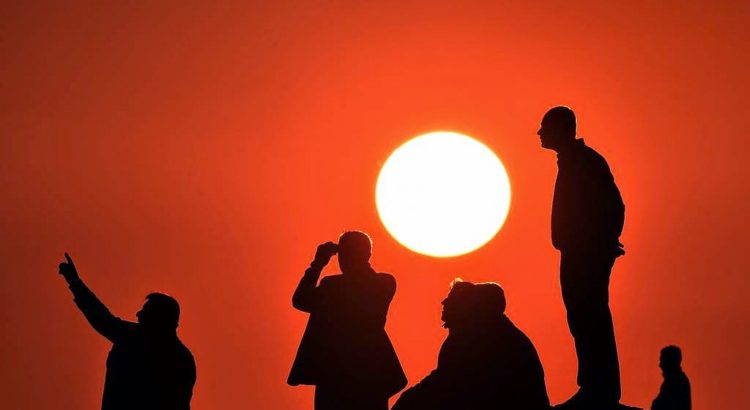Declaración final de la VIII Reunión Mundial de la CCONG/EPT 2017.
UNESCO, 2017 CCNGO/Education 2030. Global Meeting DECLARATION.
Implementing SDG4-Education 2030
1. We, the representatives of national, regional and international non-governmental and civil society organisations and members of the Collective Consultation of NGOs (CCNGO) for Education 2030 from different parts of the world have gathered in Siem Reap, Cambodia on 8 and 9 May 2017.
2. We re-affirm that education is a fundamental human right and a public good that is key to promoting social, economic and environmental justice. States have the duty to provide free quality equitable public education at all levels and lifelong learning for all, and to ensure the right to education is enshrined in law and enforceable.
3. We have met to take stock and discuss the implementation of SDG4-Education 2030 since its adoption and make recommendations. Participants discussed initiatives undertaken, key challenges encountered, opportunities identified and ways forward, as well as debated the role of civil society organizations in supporting the implementation of SDG4-Education 2030 at national, regional and global levels, and the contributions of the CCNGO in this regard. We furthermore agreed upon the revised working procedures of the CCNGO in light of SDG4-Education 2030 and elected a new CCNGO Coordination Group for 2017- 2019.
In this context, we reaffirm:
Our endorsement of the vision, principles, goals and targets laid out under SDG 4 within ‘The 2030 Agenda for Sustainable Development’; the Incheon Declaration; the ‘Education 2030 Framework for Action’; and the 2015 Incheon Final Declaration of the NGO Forum;
The important role of civil society organisations in the implementation of SDG4-Education 2030, and their engagement and involvement at all stages, from policy formulation and planning through to monitoring and evaluation with their participation institutionalized and guaranteed, as stated in the Education 2030 Framework for Action. -2- Challenges and opportunities in SDG4-Education 2030 implementation.
4. We note that civil society faces challenges in securing its significant role in implementing the agenda. Across all regions, civil society faces shrinking space, with the rise of authoritarian regimes, the weakening of democratic ones and a consequent restriction on the space for the voices of all people, especially the most marginalized. There are also fewer opportunities for broad-based dialogue on education and more limited involvement of civil society in government policy and planning processes.
5. In addition, external factors in the social and political environment, in particular conflict, war, violence, fundamentalism and the insecurity that citizens experience in such situations have exacerbated this challenge. In this context, education for democracy, citizenship and peace is ever more important for upholding civil rights and basic freedoms.
6. We have identified core challenges in implementation of SDG4-Eduction 2030 that revolve around policy, financing, data, governance and accountability cutting across its central pillars: equity, quality, inclusion and lifelong learning. In regard to policies, either these are not in place, or they are not grounded in the perspective of SDG4-Education 2030, in some cases moving away from it, or do not prioritise critical areas, such as is often the case with Early Childhood Education, Youth and Adult Education, Lifelong Learning and Quality. Progress has stalled, or, in certain cases, there has been regression in gender equality and identity policies. Furthermore, the lack or absence of reliable and disaggregated data, are ongoing obstacles for informed policy making.
7. In regard to financing, the enthusiastic approval of the SDGs and the Education 2030 Framework for Action has not been matched by financial commitments and, in some cases, we have seen a decline in both national allocation and ODA to education, as well as support to CSOs working in education. At the same time, new emerging international financing frameworks are positing competing priorities, which could work to the detriment of improved and increased international cooperation. Implementation of the ambitious SDG4-Education 2030 is impossible without dedicated efforts to generate adequate and sustained finances, be it through increased domestic resource allocation, a reversal in the trend of decreasing international cooperation and reforms in the global finance system to address core structural problems to leverage new resources. If current financing trends continue, we will not achieve the targets we have set for SDG4-Education 2030 by the 2030 deadline.
8. We further note the challenge of ensuring education as a right and public good especially in the context of increased privatization and commercialisation of education. We are concerned that the growth of profit making in education and the proliferation of low fee private school chains, supported by some International Financing Institutions and donor agencies, undermine free public quality education and exacerbate inequalities based on wealth, gender, disability, migration status, ethnicity and location. In this regard, we welcome the 2015 Human Rights council resolution A/HRC/29/L.14 that noted with concern the “wide-ranging impact of the commercialization of education on the enjoyment of the right to education” and calls for “significant importance of public investment in education”. 1 This section derives not only from debates of the 8th Global Meeting of the CCNGO, but also on a research conducted on SDG4/ E2030 Implementation, the results of which were developed into a Background Paper. -3- 9. We observe the persistence of wide scale shortage of trained teachers, aggravated by inadequate initial and continued teacher training, poor working conditions as well as low salaries and teacher status, constituting obstacles to the provision of quality education. Despite the apparent consensus around the centrality of the teaching profession to quality education, undervaluing of teachers and other education workers continues to prevail across the continents.
10. Finally, a key challenge to the implementation of SDG4-Education 2030 is the existence of competing international agendas and architectures, based on principles that are not aligned with SDG4-Education 2030.
11. These challenges are limiting the effective implementation of equitable, inclusive, free quality education, further marginalizing vulnerable children, youth, and adults, especially the poor, girls and women, migrants, refugees, conflict-affected children, indigenous and rural people, LGBTQI and people with disabilities and contradicting the principle of leaving no one behind.
12. Notwithstanding these challenges, the holistic, transformative, ambitious Agenda 2030 for Sustainable Development commits all Governments to recognize civil society as key stakeholders and legitimate actors in policy dialogue and decision making at all levels. This provides an opportunity for a strong and vibrant civil society to actively engage and impact the implementation of the SDGs and in particular SDG4.
13. CSO participation is supported by a solid architecture for CSOs to engage in SDG 4-Education 2030 which includes the CCNGO/ED 2030, SDG-Education 2030 Steering Committee, and the Education and Academia Stakeholder Group which is recognized by the UN High Level Political Forum as one of the stakeholder groups.
14. The 2030 Sustainable Development Agenda commitment to strengthened partnerships and crosssectoral collaboration provides key opportunities for inter-sectoral dialogues amongst CSOs. Recommendations 15. Governments are duty bearers to deliver public, quality and free education. We therefore call on governments who have not yet done so to enact legal frameworks on the right to education, according to international human rights standards. Governments must strengthen public education systems and regulate private sector provision in line with related Human Rights Council Resolutions.
16. Noting the continued harmful tax incentives, tax evasion, aggressive tax avoidance, corruption, illicit financial flows and increased military spending, we call upon governments to address these issues both nationally and through coordinated global action. We also call for scaled up efforts to meet the agreed commitments to allocate at least 4 – 6 per cent of GDP to education and/or at least 15 – 20 per cent of public expenditure to education, taking note that progressive additional resources are necessary. Financing for education should be maintained and increased as required even during times of crisis and at all times should respond to equity and quality criteria. Public investments should be directed to public education and be screened against the criteria that they ensure that all people, in particular the most -4- marginalized and vulnerable, realize their right to education. Social accountability of public expenditure is crucial.
17. We strongly recommend that donor countries reverse the decline in aid and meet the agreed benchmark of 0.7 % of GNI for ODA to developing countries and 0.15 % – 0.2 % of GNI to LDCs. GPE replenishment must be seen as an important and timely opportunity to scale up commitments and investments to education, and ensuring that the full SDG 4-Education 2030 is taken up by GPE.
18. We commit to use, promote, and participate in SDG4-Education 2030 accountability mechanisms at national, regional, and global levels such as the UN Special Rapporteur for the Right to Education, Universal Period Review, and the Voluntary National Review process during the annual High-Level Political Forum (HLPF).
19. We call on governments and donors to commit the financial and technical resources required to collect credible data on SDG4-Education 2030. To do this, governments should take immediate action to create robust monitoring, reporting, and follow-up mechanisms for the indicators for SDG4-Education 2030, to be adopted by the IAEG-SDG committee. This data should be disaggregated at a minimum by age, gender, disability, migration, economic, and geographic status.
20. Inclusion and gender equality remain at the heart of the 2030 Agenda. We call on governments to step up their efforts to ensure inclusive education, in particular paying attention to gender equality, disability, migrants and refugees, respect for diversity, including human rights for LGBTQI, by addressing discriminatory policy and practice, access, curriculum, learning and teaching processes.
21. There needs to be recognition that quality needs to be understood in a broad sense, including inputs, processes and enabling learning environments and should not just be reduced to academic learning outcomes. The current global indicator is narrowing quality outcomes to literacy and numeracy. We therefore call upon governments to develop additional indicators which capture the breadth of quality education.
22. We recognize that teachers and educators are the essential pillar for quality education. We urge governments to address the teacher gap through training and recruiting qualified teachers and ensuring their continued professional development, with particular attention to gender.
23. Noting the increasing importance of the role of information and communication in our societies and in education, we urge governments to make efforts to democratize access to communication, foster community-based media, bridge the digital divide and ensure equitable access and improved learning, thus promoting enhanced public debate and citizen engagement.
24. We recommend an integrated approach to skills development that combines work related skills, foundational skills and literacy, as well as skills for sustainable development and participatory citizenship. This requires more investment in adult education, non-formal education, and adult literacy, within a lifelong learning approach that recognizes the equivalency of non-formal education qualifications. -5- Learners should be provided with skills that enable them to adapt to rapidly changing environments and to continue learning to prepare them for the future. Role and actions of civil society in the implementation of SDG4-Education 2030 and the education-related targets in the other SDGs In light of the need for continued action to complete the unfinished EFA agenda and given the more ambitious universal SDG4-Education 2030 agenda, we commit to the following:
25. Build greater awareness of and commitment to SDG4-Education 2030 by governments, civil society, and other stakeholders.
26. Hold governments, donors and other stakeholders accountable for meeting SDG4-Education 2030 through civil society’s active and institutionalized participation in transparent inclusive accountability processes and mechanisms; national, regional and global policy dialogue; inputs to national education and cross-sector development plans; contribution of robust research and field-based evidence; scaledup advocacy; and, programmatic interventions.
27. Continue to promote the inclusion of discriminated groups, broadening public debate and fostering active citizen participation, including parents, teachers, children/learners, in translating the global agenda into national action. We commit to using existing networks and platforms, and creating new ones where necessary, to elevate the voices and views of children, students and learners; empowering them to take ownership of the agenda and their future.
28. Continue to build and strengthen partnerships between civil society and other key education stakeholders and increase networking among civil society actors beyond the education sector, promoting intersectoral dialogue.
29. Civil society, supported by academia, should highlight inadequacies in formal data collection systems, and assist governments in data collection and strengthening data collection systems, including through innovative data collection mechanisms, such as citizen-generated data. Data should be made readily available and accessible to all stakeholders.
30. Support peer-learning among NGOs, sharing of information and knowledge, cross-fertilization of good practice and undertaking of research to generate knowledge that helps inform and support education policy formulation, implementation and monitoring & evaluation.
31. Continue to engage with the development and implementation of the indicator framework at global, regional and national levels as well as with the monitoring and reporting of progress made towards SDG4- Education 2030, including through the development of spotlight reports for SDG 4 as a civil society accountability mechanism, and in particular in the lead up to the 2019 HLPF. -6-
32. Fulfilling an observatory function and building budget and performance tracking capacity at local level by contributing to monitoring educational achievement and strengthening the accountability of governments. CCNGO/ED 2030 Noting that the CCNGO/ED 2030 is UNESCO’s key mechanism for dialogue, reflection and partnerships with NGOs for the implementation of the SDG4–Education 2030 and an important part of the global SDG 4 coordination mechanisms as spelt out in the Education 2030 Framework for Action, we recommend the CCNGO to:
33. Amplify its advocacy and lobbying role at local, national, regional, and global levels.
34. Provide a platform and network to monitor fulfilment of the SDG4–Education 2030 agenda, including through the development of spotlight reports and other monitoring mechanisms.
35. Foster exchange and learning, share knowledge, and engage in wider debates and cross-sectoral engagement, including through increased dialogue with the UNESCO-NGO Liaison Committee and Education and Academia Stakeholder Group.
36. Explore the expansion of membership of the CCNGO to align with the wider constituencies of the broader SDG 4-Education 2030 agenda.
37. In order for UNESCO to fulfil its leadership and coordination of SDG4-Edcation 2030 in line with the Incheon Declaration and the Education 2030 Framework for Action, we call on member states and donors to step up commitments in support of UNESCO.
38. We call upon UNESCO to secure funding and provide dedicated support for the sustained functioning of the CCNGO within the SDG4- Education 2030 architecture.
39. As discussed during this meeting, we agree to change the name of the former Collective Consultation of NGOs for Education for All (CCNGO/EFA) to Collective Consultation of NGOs for Education 2030 (CCNGO/ED 2030), in light of the new education agenda and the revised working procedures.
40. We thank UNESCO for organising the 8 th CCNGO/EFA Meeting in Siem Reap, Cambodia and express our deep gratitude to the Government of the Kingdom of Cambodia for their hospitality. We also congratulate and express our gratitude to our hosts, NGO Education Partnership, for their warm welcome and invaluable support in organizing the meeting. We are also very grateful for the generous financial contribution of the Open Society Foundation, which made it possible for an important number of CCNGO members to participate in this important meeting. Finally, we recognise and appreciate the contributions of all participants to the exchange and dialogue throughout the conference. Siem Reap, 9 May 2017










 Users Today : 7
Users Today : 7 Total Users : 35460390
Total Users : 35460390 Views Today : 15
Views Today : 15 Total views : 3419178
Total views : 3419178